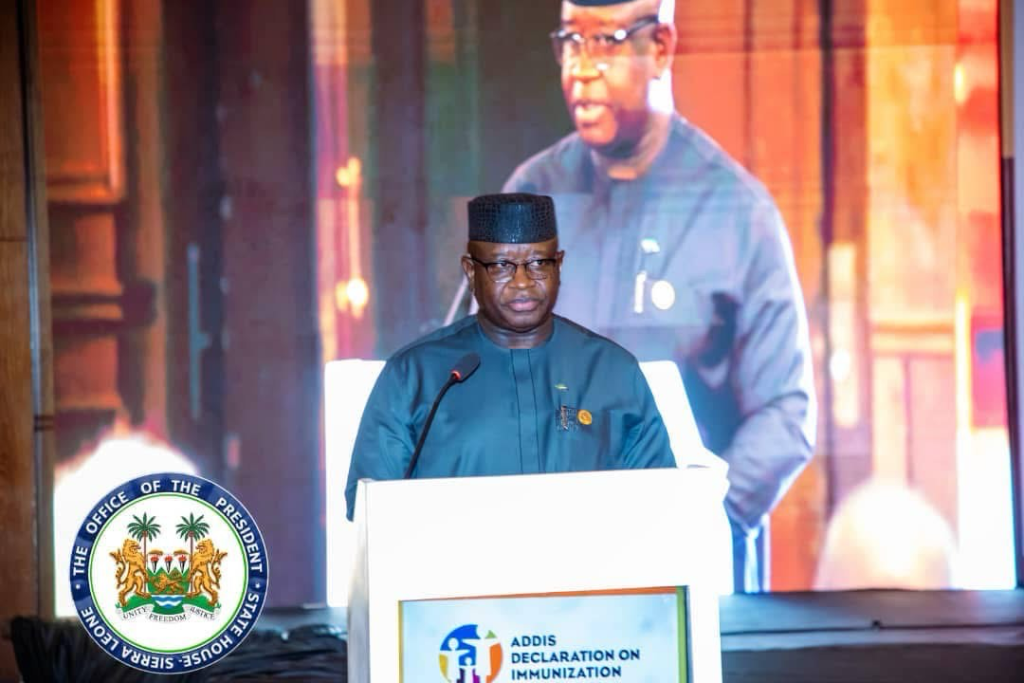Sierra Leone’s President, Dr Julius Maada Bio, made a compelling call for African leaders and citizens to work together to achieve universal immunisation across the continent at a recent High-Level Side Event during the 38th African Union Summit. As the keynote speaker at the event, which focused on the theme “Reaffirming Africa’s Commitment to Immunisation: A Call for Action to Strengthen Health Systems,” President Bio emphasised the importance of decisive leadership and immediate action to ensure African populations’ health and well-being.
The meeting aimed to assess progress in immunisation efforts across Africa since the adoption of the Addis Declaration on Immunisation (ADI) in 2017, which has significantly increased vaccine coverage, galvanised political support, and improved delivery systems across the continent.
In his opening remarks, President Bio expressed a powerful sentiment: “There is no greater measure of a nation’s progress than the health and well-being of its people. Vaccines are the unseen pillars of a country’s strength; they strengthen communities and save lives. He emphasised that universal immunisation is more than just a public health issue; it is also critical in preventing African economies from collapsing during health crises, ensuring resilience and readiness.
Reflecting on Sierra Leone’s previous experiences with epidemics such as Ebola and COVID-19, President Bio emphasised the importance of strong immunisation systems in national security. He stated, “One of the most important lessons we have learnt is that a strong immunisation system is not an option; it is critical to national security.”
President Bio proudly stated that Sierra Leone is on track to achieve unprecedented levels of national immunisation coverage by the end of 2024, highlighting the country’s achievements under his leadership. He reported that measles vaccinations have attained a remarkable 95% coverage, DPT3 vaccinations have reached 97%, and the newly introduced malaria vaccine has been administered to 71% of eligible children.
President Bio emphasised that Sierra Leone is not just discussing these issues; it is actively leading the charge. “We refuse to accept a status quo in which preventable diseases continue to kill people,” he declared emphatically.
President Bio issued a passionate call to action to fellow African leaders to ensure that every child on the continent, regardless of where they were born, has access to life-saving vaccines. He said, “This is not charity; it is common sense.”
In his closing remarks, President Bio urged African leaders, international partners, civil society, and stakeholders to take responsibility for Africa’s immunisation program. He emphasised the significance of indigenous leadership in this initiative, stating, “Africa’s immunisation agenda must be owned and led by Africans today, with an urgency that cannot be overstated.” We cannot rely solely on external funding, nor can we afford to be reactive. Immunisation must be viewed as a non-negotiable component of national security—because, without a healthy population, nothing else matters.”
The event concluded with a powerful statement from Dr. Austin Demby, Sierra Leone’s Minister of Health and Sanitation, speaking on behalf of the African Union Ministers of Health. He reaffirmed the continent’s commitment to advancing the immunisation agenda, recognising Sierra Leone’s critical role in championing this important cause.
